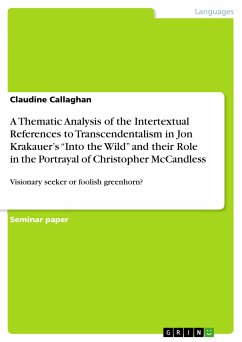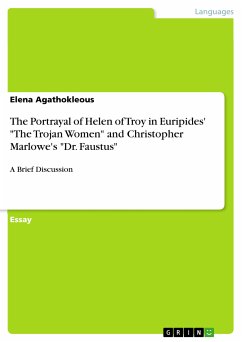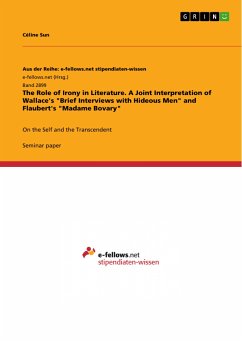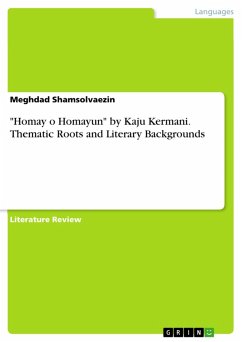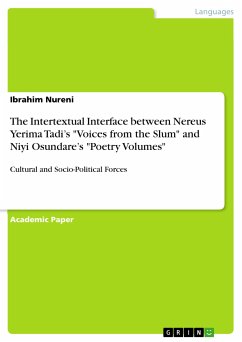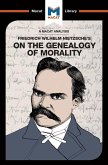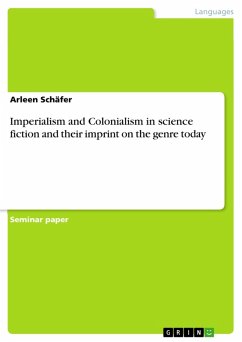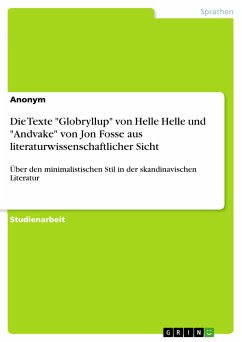Seminar paper from the year 2017 in the subject Literature - General, University of Limerick, language: English, abstract: This thesis aims to critically analyze the intertextual references in the book "Into the Wild" by Jon Krakauer, to the transcendentalist movement which occurred in in 19th century America. The thesis will develop a thematic analysis of the differences and similarities between Transcendentalist literary icons, such as Henry David Thoreau and Ralph Waldo Emerson, and Christopher McCandless, the book's protagonist. It will explore various themes from the transcendentalist doctrine and identify areas where Krakauer applies Thoreau's ideas and principles in an effort to characterize McCandless in the narrative. The result of Krakauer's formulated parallels between the transcendentalists and McCandless has created a long-standing polarisation amongst readers where some accuse Krakauer of using Thoreau and Emerson to create a highly romanticized and idealized portrayal of McCandless and criticize him for not representing McCandless' death as foolish and senseless. Others seem to think that the analogies drawn are justified because they accentuate McCandless' transcendentalist qualities and provide an accurate depiction of his moral nature and idealism. Each chapter of the thesis will encompass a specific concept or theme belonging to Transcendentalism and explore Krakauer's intertextual use of the movement with the aim of exposing both sides of the argument. It will also establish how these references have shaped the reader's perception of the protagonist and how intertextuality in Into the Wild has contributed to the cult phenomenon surrounding Christopher McCandless. In a broad sense, the term intertextuality can be defined as the study of a presence of a text within another text and it is most often employed in literary analysis. It describes the intricate relationship and interconnectedness which exists betweenworks of literature with the general assumption that texts gain their meaning through evocation of other texts. The concept was developed in the late 1960s by poststructuralist Julia Kristeva who states that "a text is a permutation of texts, an intertextuality in the space of a given text in which several utterances, taken from other texts, intersect and neutralize one another". Essentially, all texts contain traces of other texts. Intertextuality is the concept of texts using ideological concepts, themes, stylistic technique or even just certain words and phrases borrowed from another text.
Dieser Download kann aus rechtlichen Gründen nur mit Rechnungsadresse in A, B, BG, CY, CZ, D, DK, EW, E, FIN, F, GR, HR, H, IRL, I, LT, L, LR, M, NL, PL, P, R, S, SLO, SK ausgeliefert werden.

